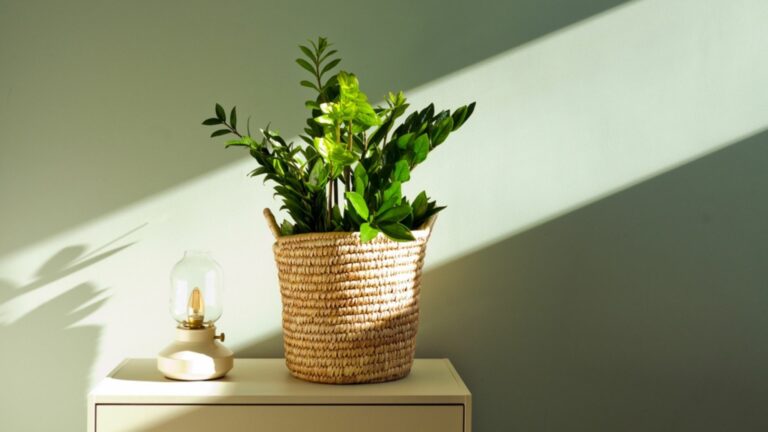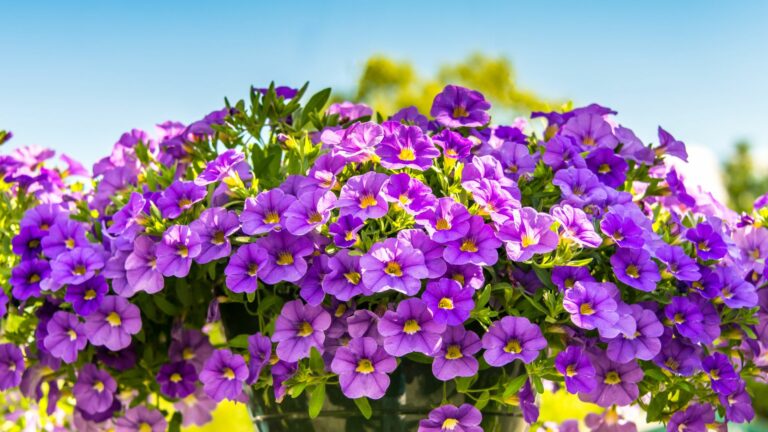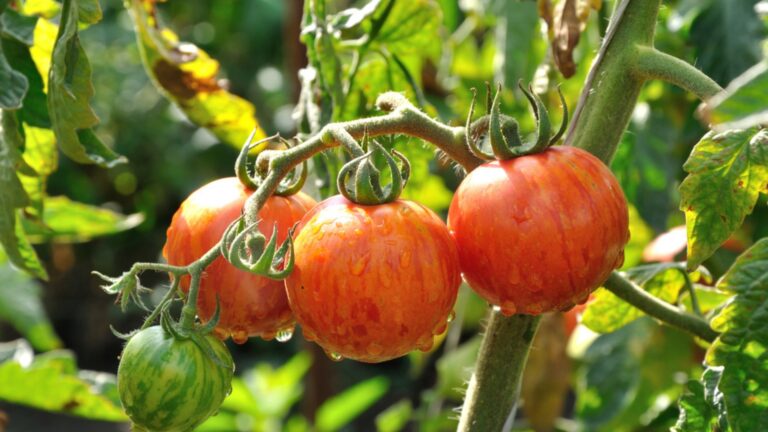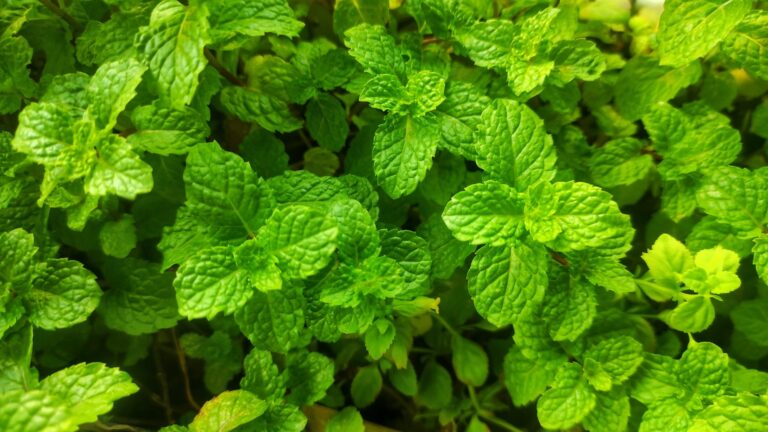Wasps Absolutely Hate The Scent Of These 12 Plants, So Make Sure To Plant Them This Summer
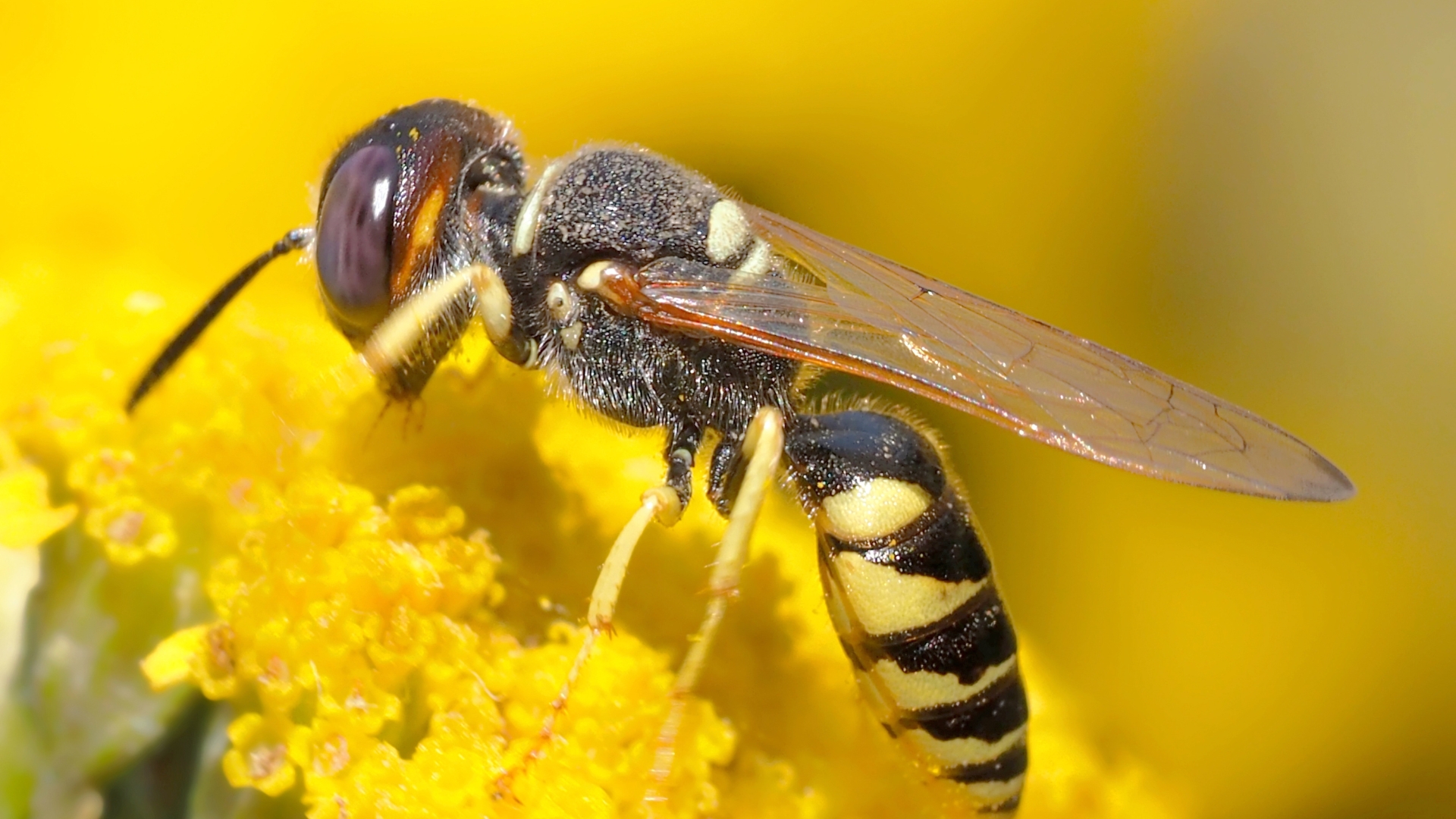
When I first started gardening, I loved everything about it…except those scary wasps. All I ever wanted was a peaceful and relaxing afternoon in my garden, but it’s impossible to unwind with all that buzzing!
I wanted to get rid of wasps without using harmful chemicals that could potentially ruin my garden. After some research (and a few sting-filled afternoons), I discovered some plants that naturally repel wasps!
What I loved the most about these plants (besides the fact that they are able to keep the wasps away) is that they added beauty and fragrance to my garden.
I couldn’t believe how simple it was to create a more serene and enjoyable outdoor space. Now, my afternoons are truly peaceful, and I can finally enjoy my garden without being a buzzkill.
One such plant is basil (my favorite). Who knew that a plant I use for cooking could double as a wasp repellent? I’m excited to share even more plants with you so that you too can enjoy peace and quiet in your garden.
1. Wasps Don’t Like Common Thyme
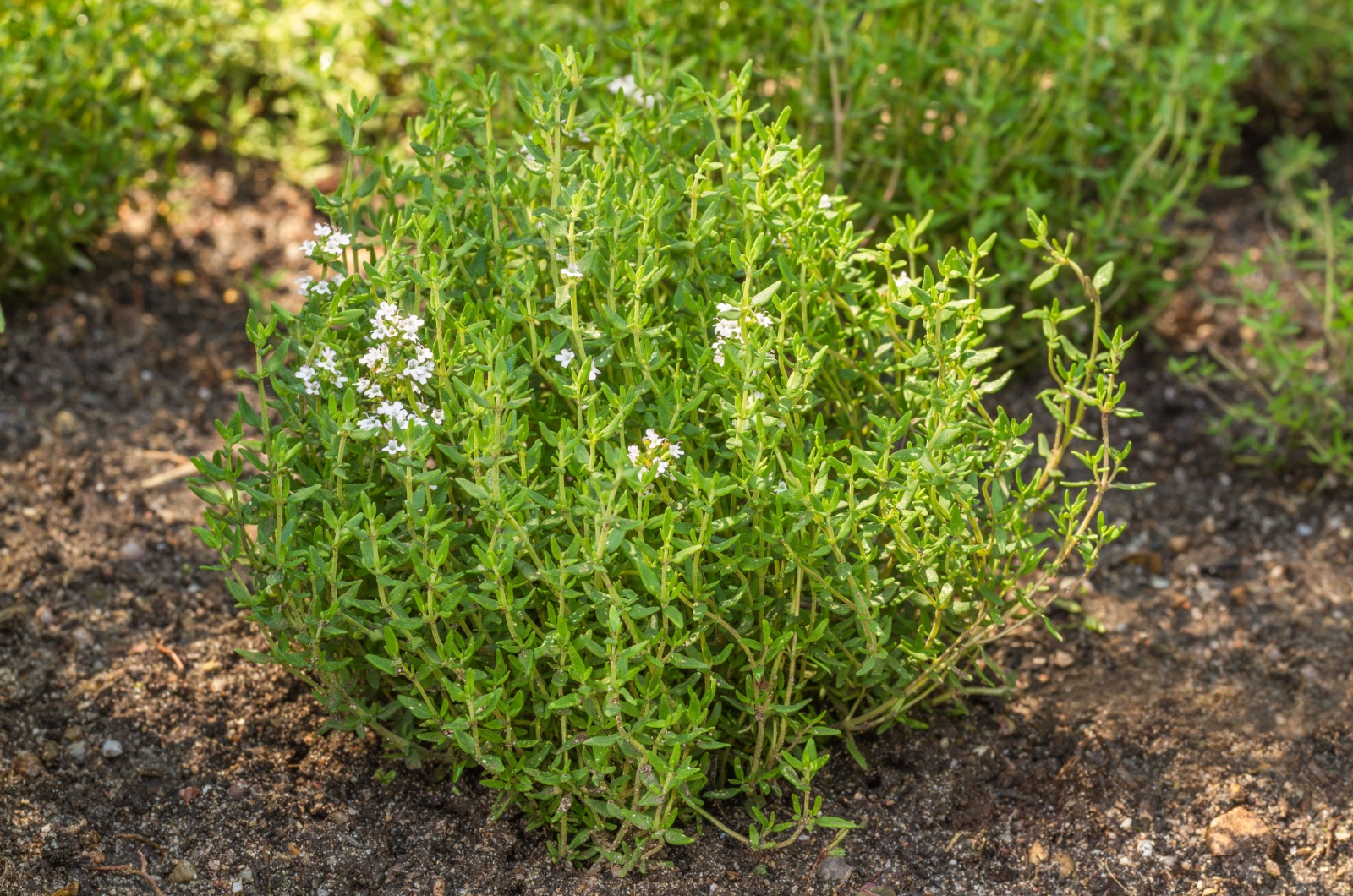
It’s hard to believe that thyme, that ground-hugging plant with lots of pretty flowers, is disliked by wasps (this made me like common thyme even more!).
Besides their crawling nature and ability to deter wasps, these aromatic herbs are also super low-maintenance and can thrive in almost any spot (as long as they have enough sun exposure).
With over 300 varieties, most types of thyme are happy in US hardiness zones 5 to 9, but they don’t fare well in wet and humid conditions.
Growing thyme in containers is a great way to keep them happy and strategically place them near areas where wasps tend to gather.
It’s also important to understand that the young, fresh leaves have the strongest flavor and aroma. So grab your shears and cut off any old growth for the best deterrent against wasps!
2. They Are Not Fond Of Eucalyptus Either
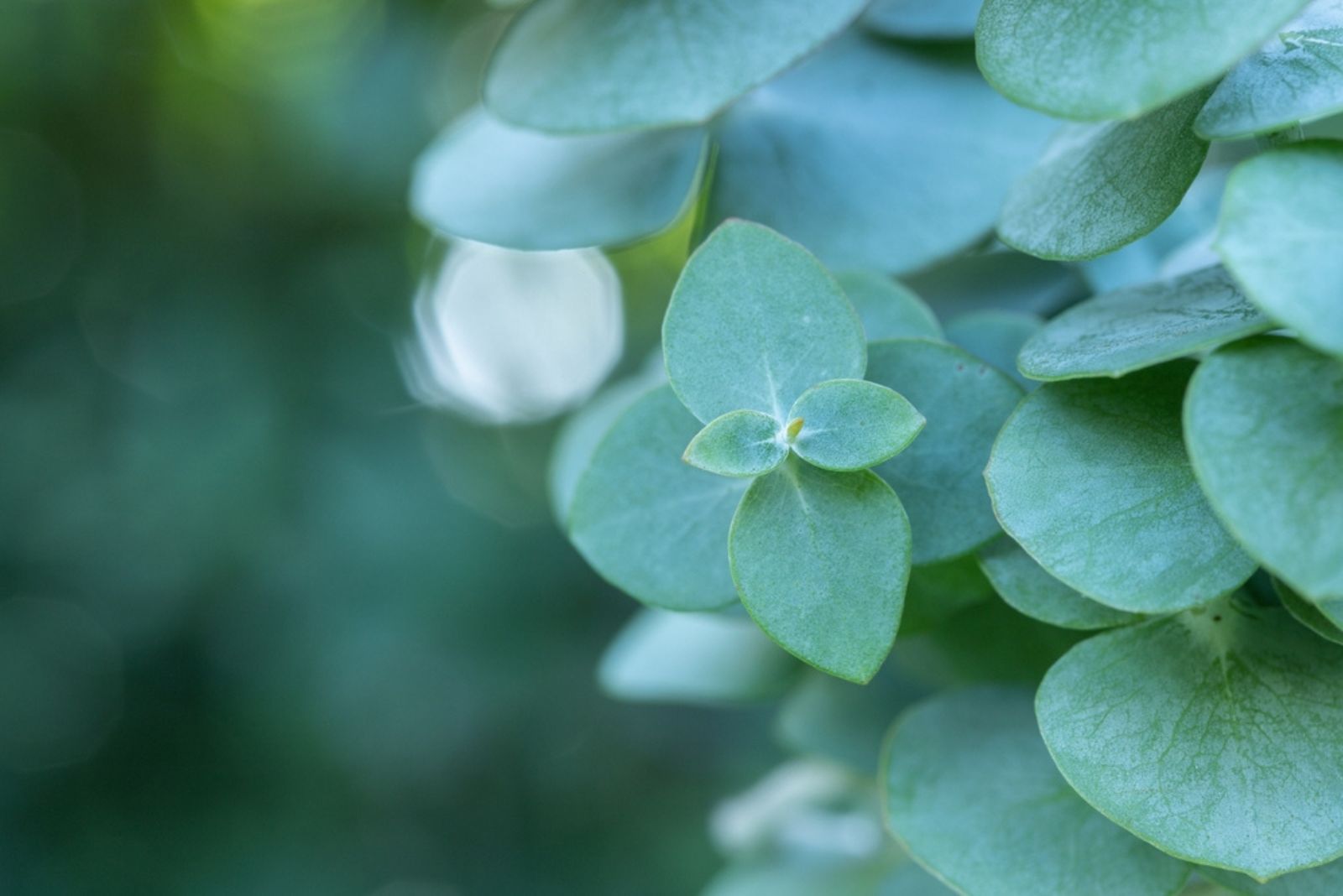
Rub or crumble a silvery eucalyptus leaf, and you’ll instantly notice bursts of menthol – these are the essential oils that can keep wasps (and many more insects) far away from your garden!
If you plan to grow it, please remember that the eucalyptus tree is an Australian native which loves having its roots in free-draining soil (rich or poor) and its branches in the sun.
These trees grow large (over 40 feet) and fast (up to 3 feet a year while young), making them ideal for creating privacy in your yard.
Don’t forget to prune this tree as it helps to control its size and promote fresh new growth. And if you don’t have enough garden space, please note that they also thrive in containers.
If you want to grow it in a container, opt for one that is at least 2 feet in diameter and be ready to upsize in a few years. Planting directly in the ground should be done away from buildings because they have the potential to dry out the soil, particularly heavy clay soil.
Also read: 5 Tricks For Banishing Ticks That’ll Help You Enjoy Your Summer Without The Itch
3. Basil To The Rescue
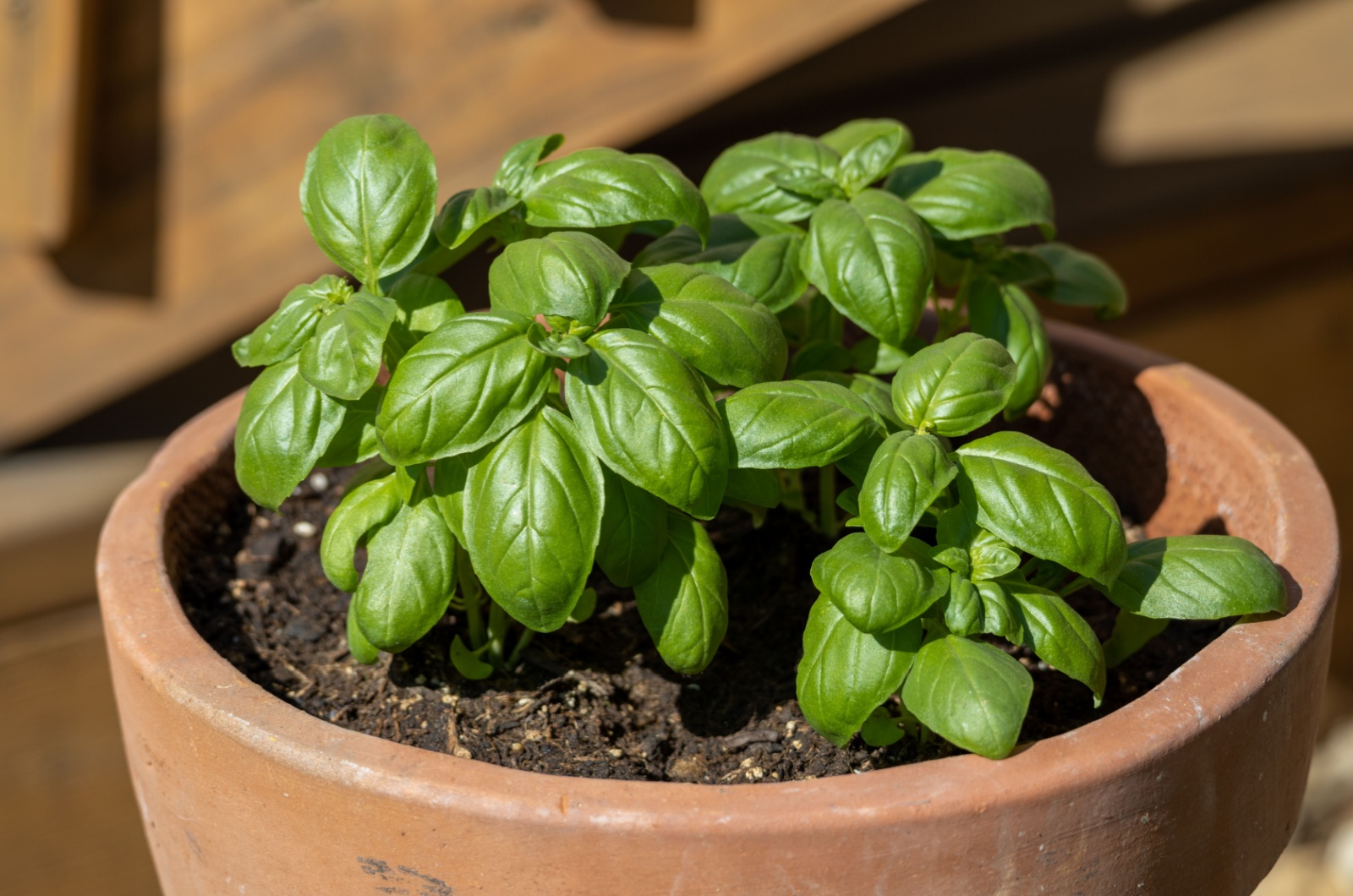
I really don’t get wasps because I love everything about basil! The smell, the taste, the texture,… it’s just THAT good. But luckily, wasps wouldn’t agree because they are put off by the fragrance (yay!).
What’s great about basil is that you can grow it from seed, both indoors and outdoors, across USDA hardiness zones 3 to 11.
Basil loves constant heat but isn’t a fan of sitting in wet compost – this will cause it to rot quickly. Its soft leaves also scorch easily, so make sure to position your basil out of direct sunlight.
When it’s time to harvest, pick individual leaves instead of snipping several plants with scissors. This promotes fresh new growth and keeps your basil plant thriving.
Don’t forget to learn how to prune basil at the right time so you get a continuous harvest of fresh basil (smart, right?).
This might be helpful: These Simple Methods Will Help You Stop Your Basil From Wilting
4. Wasps Can’t Stand The Smell Of Geraniums
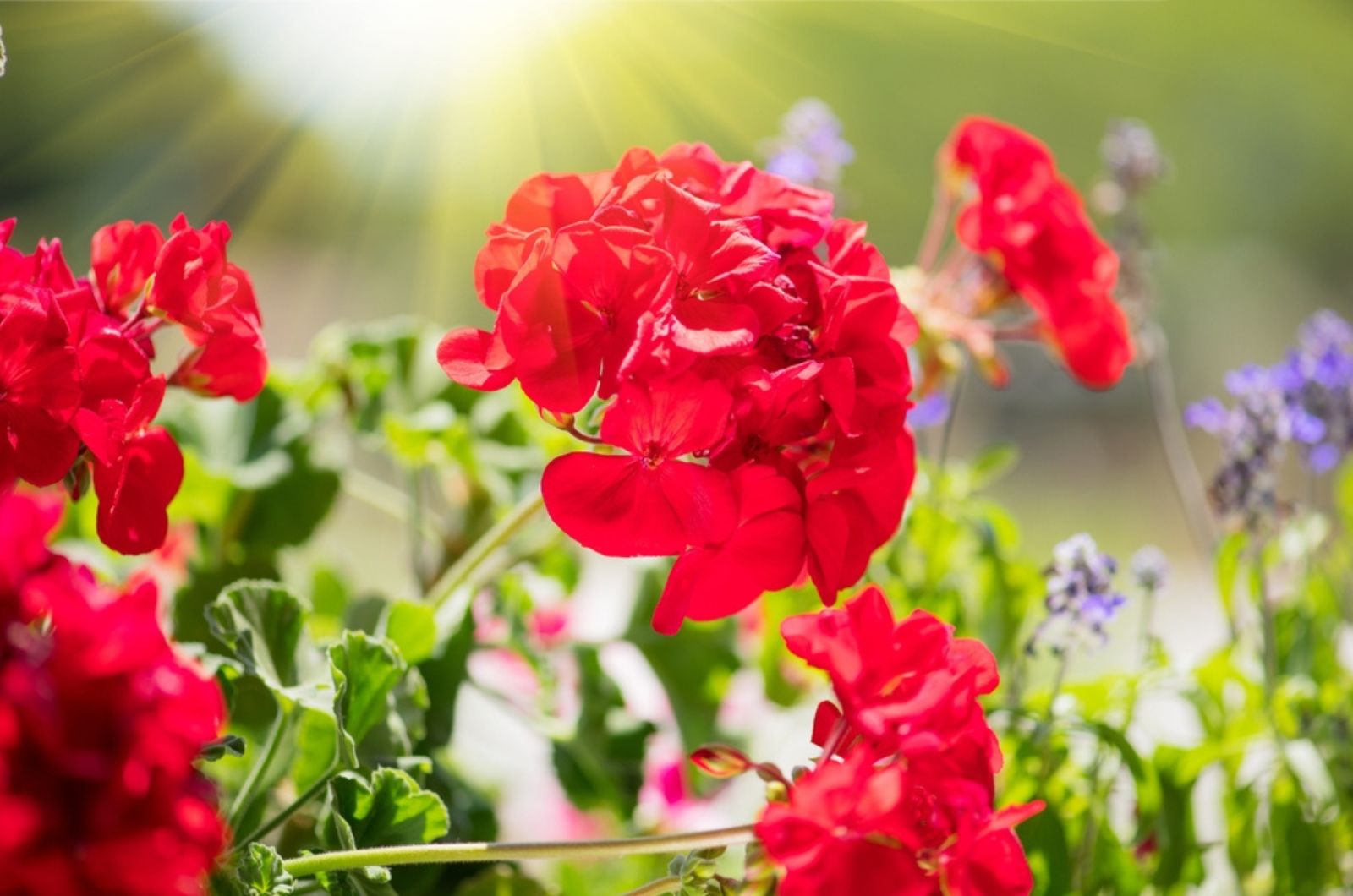
Ever noticed how those gorgeous geraniums have that instantly recognizable smell? I do, and it’s completely mesmerizing – I can immediately recognize geraniums.
Wasps detest geraniums because of their sharp sense of smell. The Experimental Perfume Club states that the well-known compounds citronellol, nerol, geraniol, and linalool that are present in geranium oil are probably the cause of this aversion.
Goodbye, tiny wasps!
Alright, let’s get back to geraniums. These annuals are half-hardy in zones 9 and lower, and they have an unending summertime flowering season. They frequently hang from window sills, are suspended from the wall, or spill out of hanging pots.
If you plan to grow these precious flowers, be sure to deadhead them regularly so that they keep on blooming. Also learn how to overwinter them so you can enjoy their beauty again next year.
Want to grow geraniums and attract hummingbirds at the same time? Read all about it here: Revamp Your Garden With These Heat-Proof Geraniums, Guaranteed to Attract Hummingbirds
5. Citronella Is Not Just For Candles And Oils
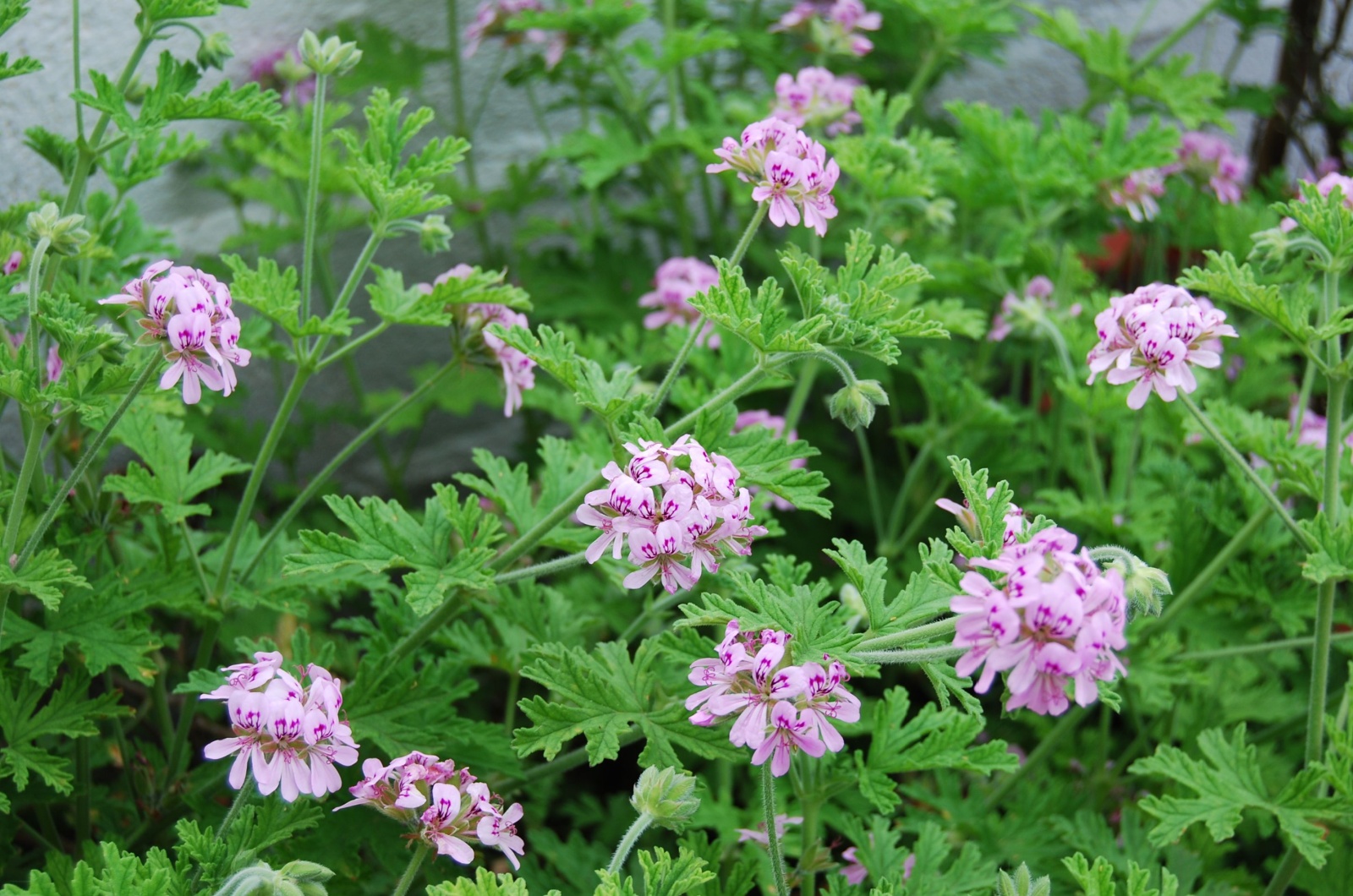
You might have heard of citronella being used for candles and oils. Well, these can have another purpose in your life: citronella works well as a natural wasp repellent.
With its beautiful pink-purple flowers, this scented flower is a feast for the eyes and a lifesaver for keeping bugs at bay.
When I planted citronella in my garden, I was amazed at how this evergreen, large branching shrub upgraded my outdoor space. The lemony scent from its tooth-edged foliage was refreshing and kept the pests away, which was crucial for me.
Citronella is a hardy plant in US hardiness zones 8 through 12, thriving in well-draining soil and full sun.
And if mosquitoes are also bugging you, citronella has you covered!
If citronella doesn’t work against your mosquitoes, this might help: Mosquitoes Absolutely Hate These 10 Smells, So Make Sure To Use Them This Summer
6. Don’t Skip Out On Lemongrass
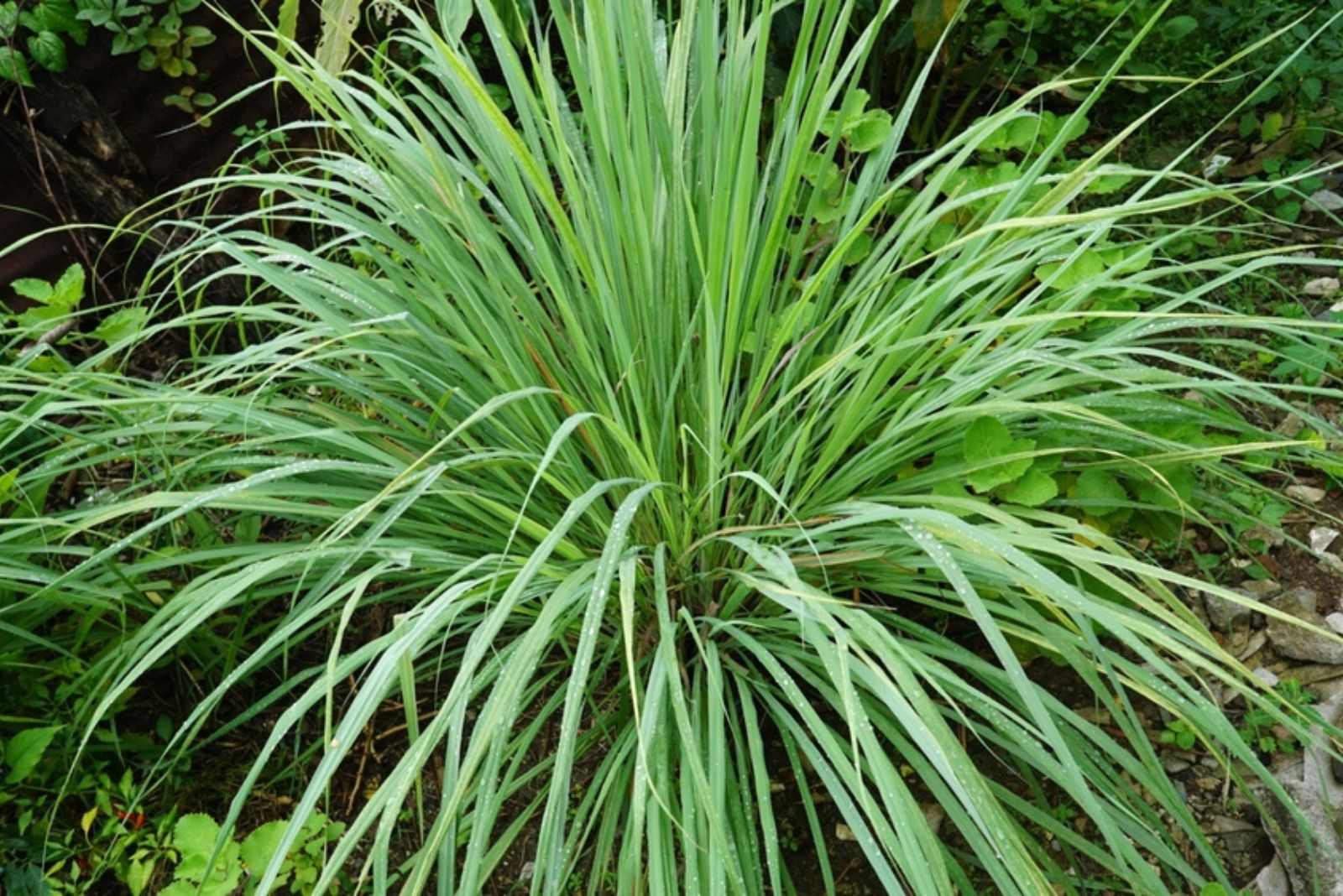
If you’re lucky enough to live in US hardiness zones 9 to 11 or warmer, lemongrass is a fantastic addition to your list of wasp-repellent plants!
This plant’s citrusy fragrance is a natural wasp deterrent (my sister swears by it!).
If you live in zones 9 through 11, you can leave it in the ground year-round, with just a bit of mulch for protection in zone 9.
For those in zone 8 or below, you can still enjoy the benefits of lemongrass – just be prepared to lift and store the plant indoors over winter.
Not convinced to grow lemongrass yet? Here are 11 Compelling Reasons To Grow Lemongrass In Your Garden.
7. Mint And Spearmint
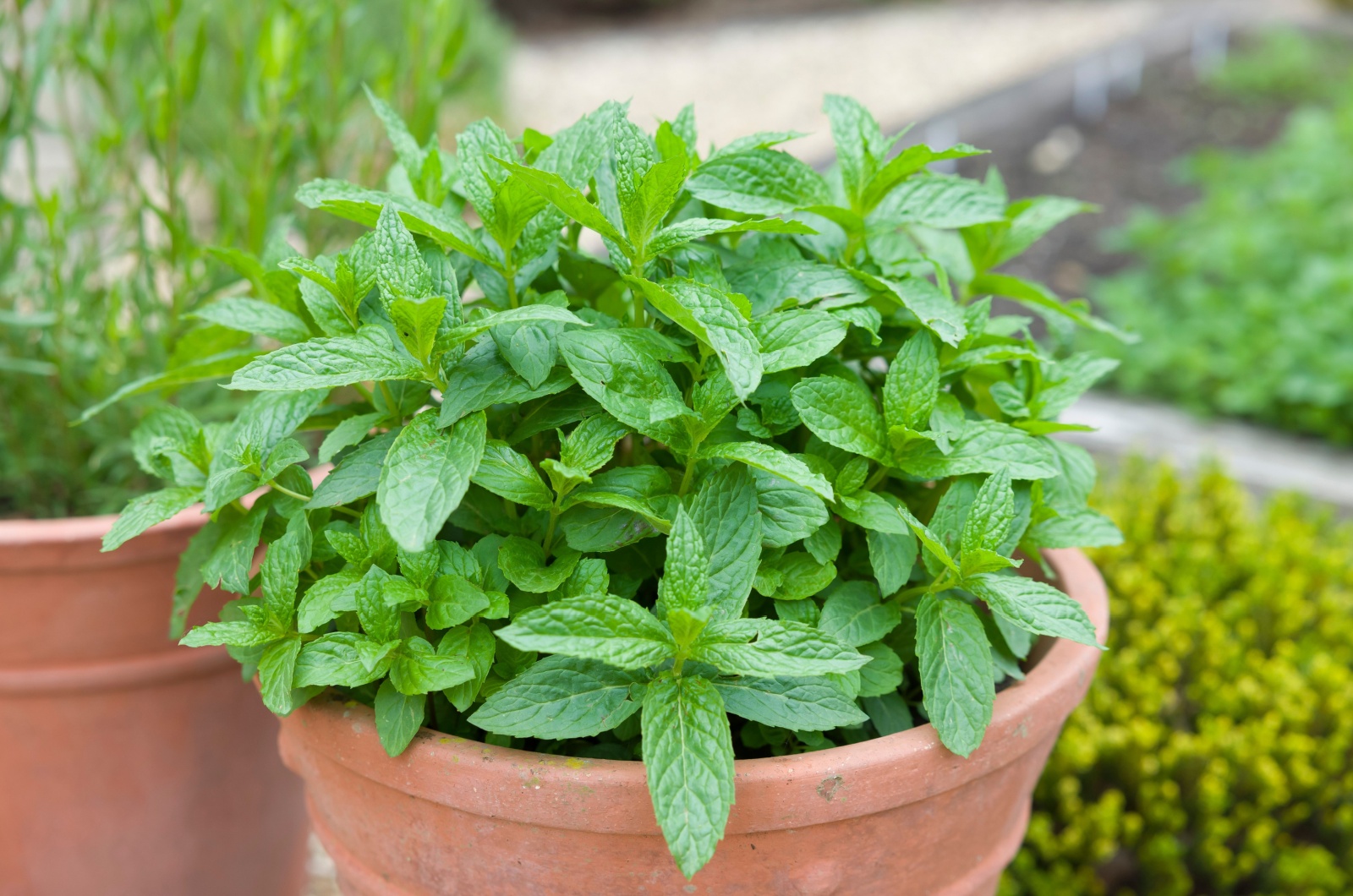
I can’t think of anyone who doesn’t like the soothing aroma of mint and spearmint. But wasps? Not so much.
There are many different types of mint to grow, each with its own subtle flavor and characteristics, but peppermint and spearmint are among the strongest and most effective at keeping wasps at bay.
These herbs will vigorously grow in spring, reaching around 3 feet before dying back to ground level in fall. You have to be cautious because they tend to get invasive – growing them in containers or pots keeps them in check.
If you are not comfortable cultivating spearmint and mint in your yard, you can always use products with mint scents, such peppermint essential oils, to keep wasps away.
When using them, be cautious about which plants you spray them on because peppermint might harm other herbs. Before utilizing any essential oils in the garden, I would advise diluting them.
Also read: How To Keep Your Mint Plants Healthy During Winter
8. Marigolds Create Barriers For Wasps
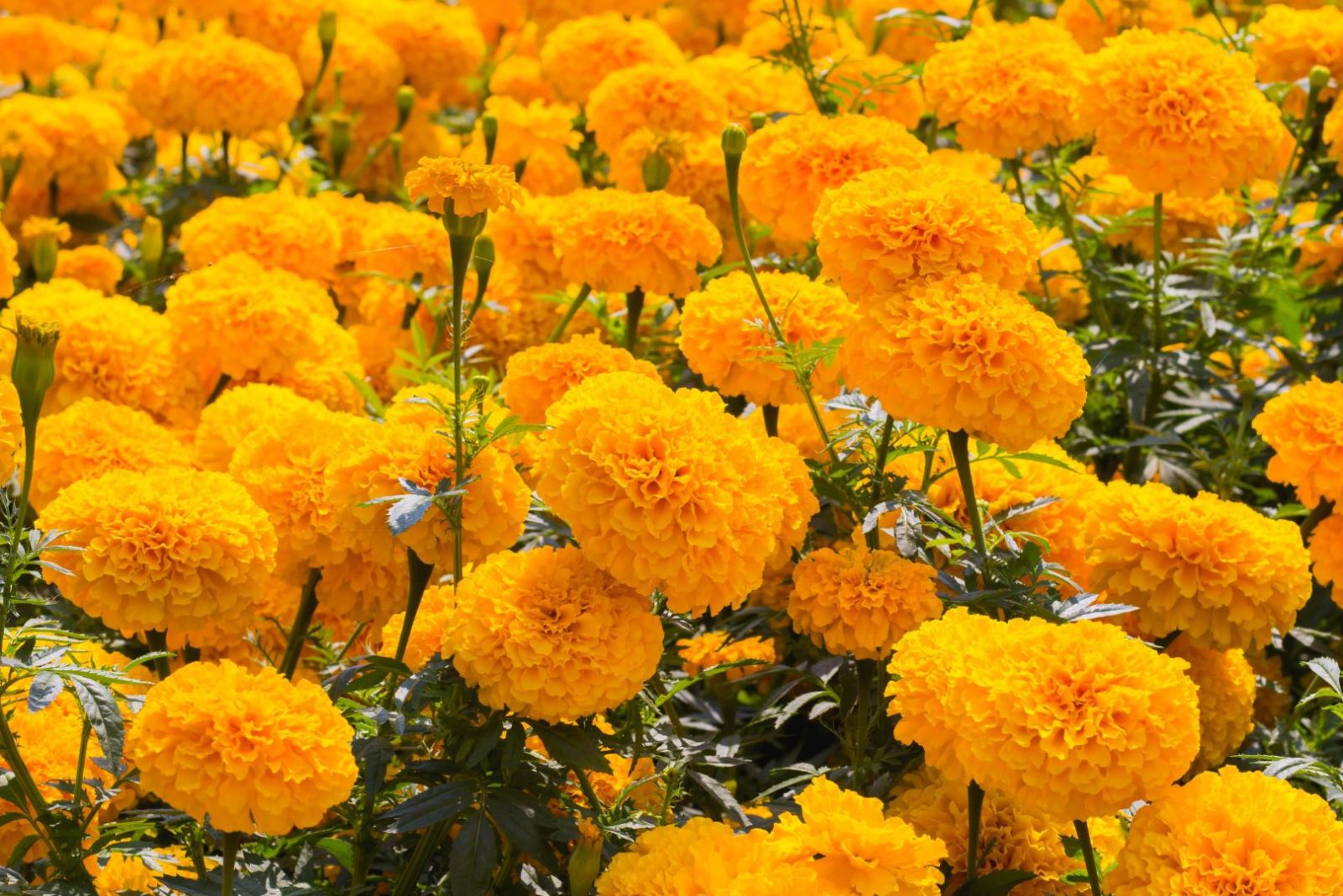
Ahh, marigolds! You either love them or, in the case of wasps, hate them. Both French and American types of marigolds can successfully repel pests with their prominent fragrances.
What gardeners often do is plant them around the home or garden so they can serve as a protective barrier no garden pests can get by!
With their bold orange-red blooms and easygoing nature, marigolds need very little attention. As tender annuals, marigolds thrive in the sun and perform well during the warmer months across US hardiness zones 2 to 11.
Also read: 15 Genius Reasons Why Marigolds Deserve A Spot In Your Vegetable Garden
9. Wasps Despise Wormwood
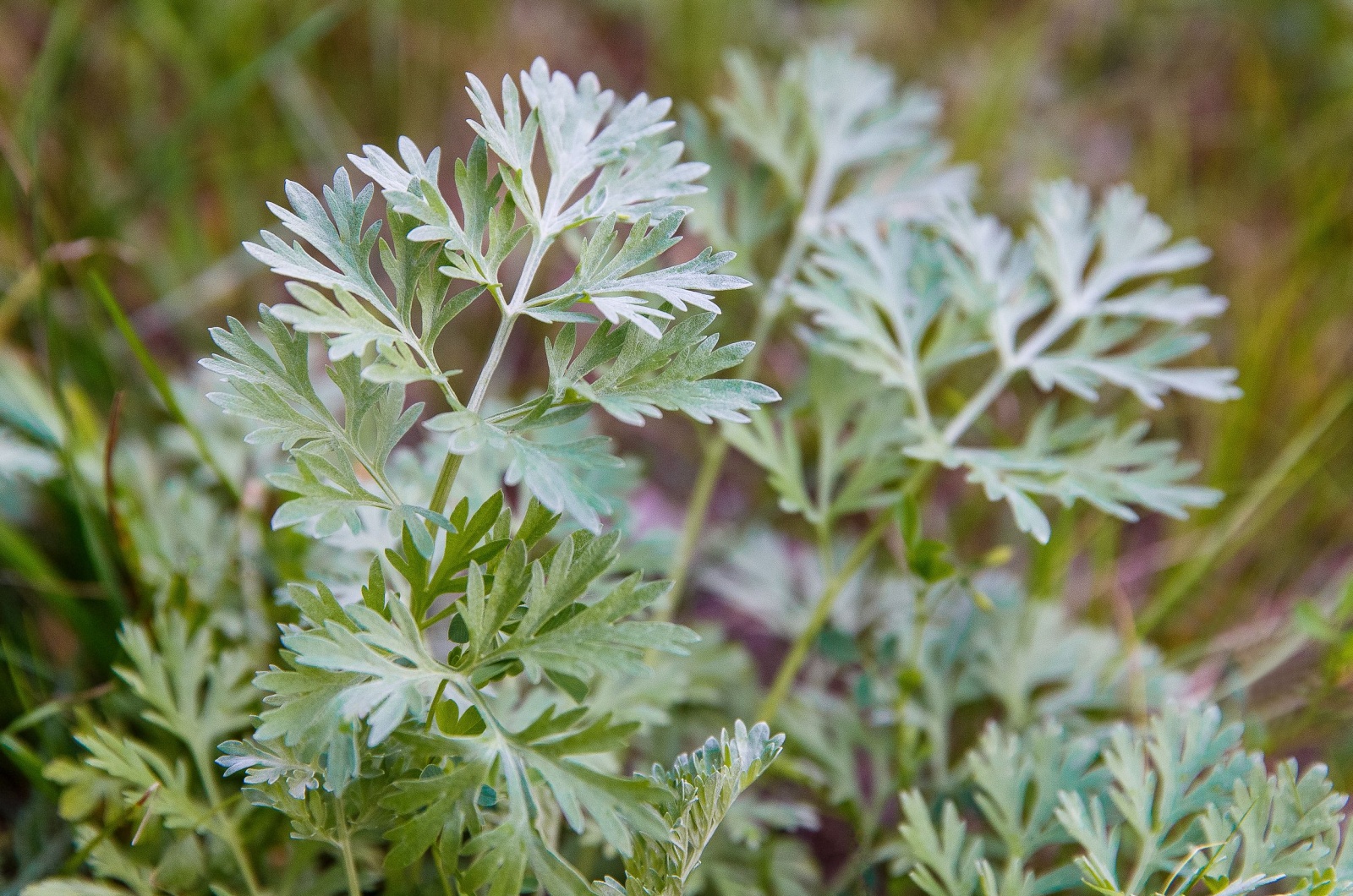
Have you ever admired the fine, silver, feathery foliage of wormwood (or, as you might have called it, Artemisia) in a garden? Well, there’s more to this charming plant than meets the eye!
Wormwood exudes a prominent, astringent scent that wasps despise. So, if you are tired of these insects ruining your summer BBQs, go ahead and give it a shot.
This unique plant grows well in US hardiness zones 4 to 9. It’s super easy to cultivate – just put it in a sunny, well-draining spot either in the ground or in a container.
This hardy perennial forms attractive mounds, reaching about 2ft high and spreading 3ft wide. Even if it loses leaves over winter, don’t worry – it’ll shoot right back up come spring.
Having issues with slugs as well? Here’s How Super Slugs Transform From Pests To Plant Protectors, Saving Your Garden One Leaf At A Time
10. Pennyroyal For The Royal End
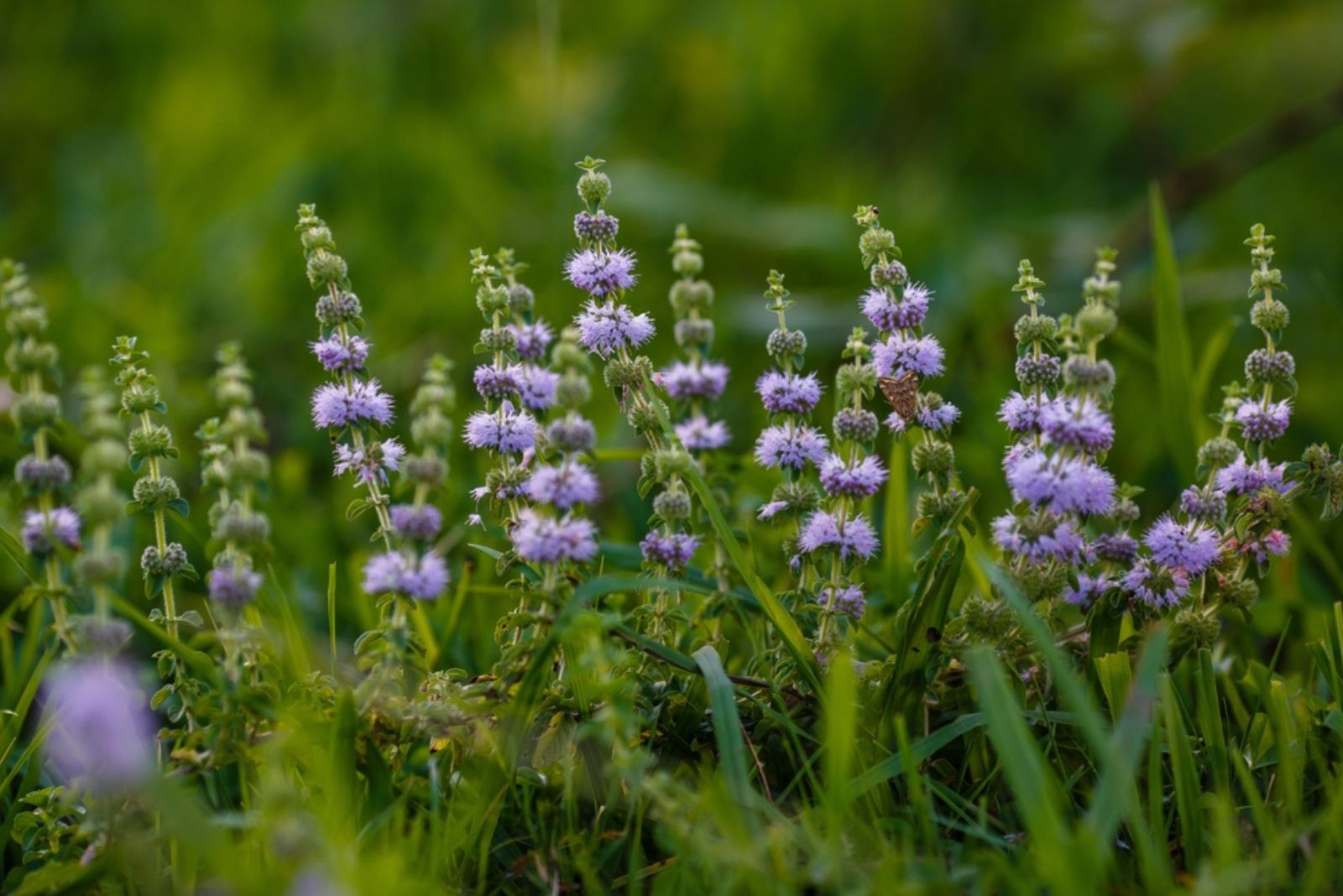
I saved you the best for last – meet pennyroyal, a vigorous ground cover that emits a strong menthol scent which wasps and many other insects don’t like. In mid-summer, it’s adorned with flowers (so you get a nice view without the buzzing around!).
Besides, you won’t even have to break a sweat for plant care because it thrives in poor soil and moist conditions (but keep an eye on it because it spreads relentlessly).
Hardy down to 5 to -4℉, it’s perfect for US hardiness zones 6 through 9. Pick between European or American varieties (the former has a more potent scent).
Well, there you have it – a roundup of the best wasp repellent plants to keep those annoying buzzers far away from the garden. Planting these natural repellents has definitely made my outdoor space more enjoyable.
So why not give it a shot and see the difference for yourself?
Here’s to peaceful, wasp-free afternoons and gardens full of beautiful, buzzing bees (the friendly kind)!.
11. Lavender Is A Dream – For Me, Not For Wasps
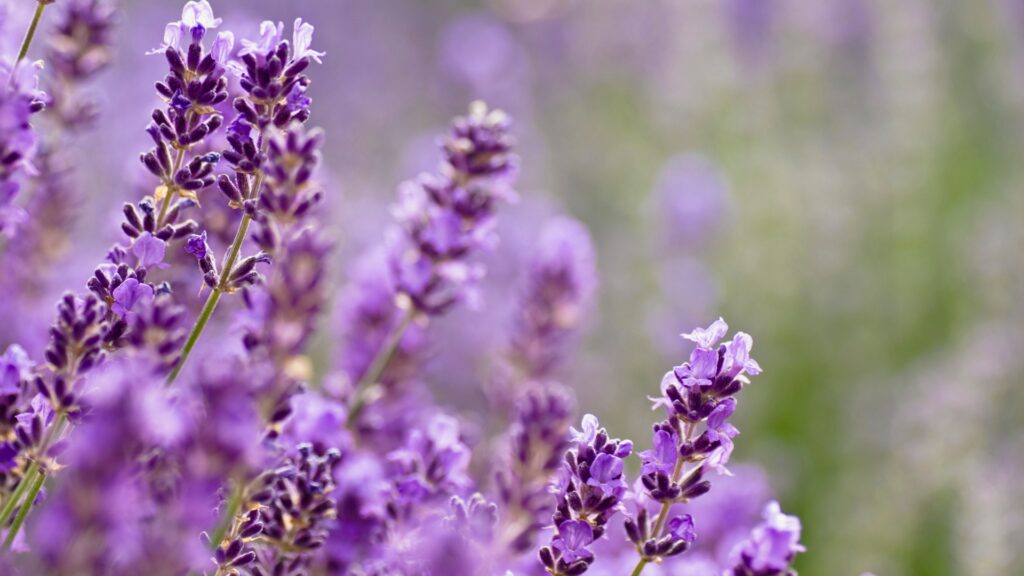
The scent of lavender is one of my absolute favorites! It’s calming, fresh, and makes me feel like I’m walking through a dreamy summer meadow. But while I’m busy inhaling its lovely aroma, wasps are buzzing far, far away.
This fragrant herb is a natural repellent, thanks to the strong essential oils it releases. Wasps just can’t handle it (which is another reason to love lavender even more!).
Lavender thrives in full sun and well-draining soil across USDA zones 5 to 9. If you’re in a colder climate, don’t worry – you can still enjoy lavender by growing it in pots and bringing it indoors during winter.
The best part? Lavender isn’t just a wasp deterrent; it also attracts pollinators like bees and butterflies. Plus, you can harvest it for homemade sachets, teas, and even DIY skincare. Talk about a multitasking plant!
Thinking of planting lavender? Don’t forget to prune it after flowering to keep it lush and encourage even more fragrant blooms.
12. Rosemary – A Kitchen Staple With A Bonus
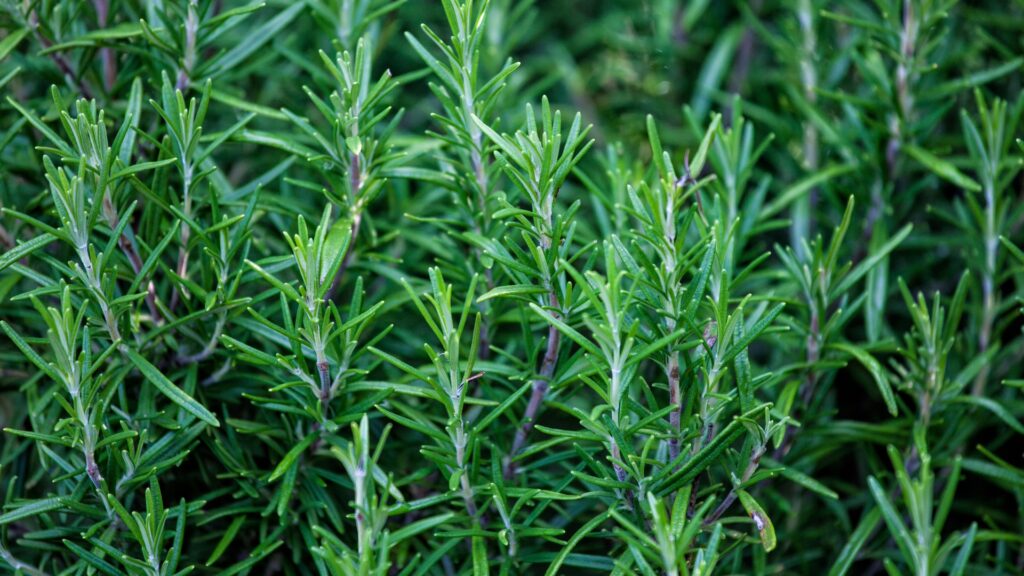
Rosemary is another herb that I absolutely adore, and (surprise, surprise!) wasps want nothing to do with it.
It turns out the same intense fragrance that makes rosemary a must-have in the kitchen is what sends wasps flying in the opposite direction. The strong, pine-like scent is just too overpowering for them.
This tough, drought-resistant herb thrives in USDA zones 7 to 10 but can also be grown in containers if you’re in a cooler area. Just make sure it gets plenty of sunlight and well-draining soil.
One of my favorite things about rosemary? It’s practically indestructible! I’ve planted it in my garden and neglected it more times than I care to admit, yet it just keeps growing.
Oh, and if you love grilling, try tossing a few rosemary sprigs onto hot coals – the smoke not only infuses your food with an amazing flavor, but it also helps keep wasps (and mosquitoes!) at bay. A win-win!


